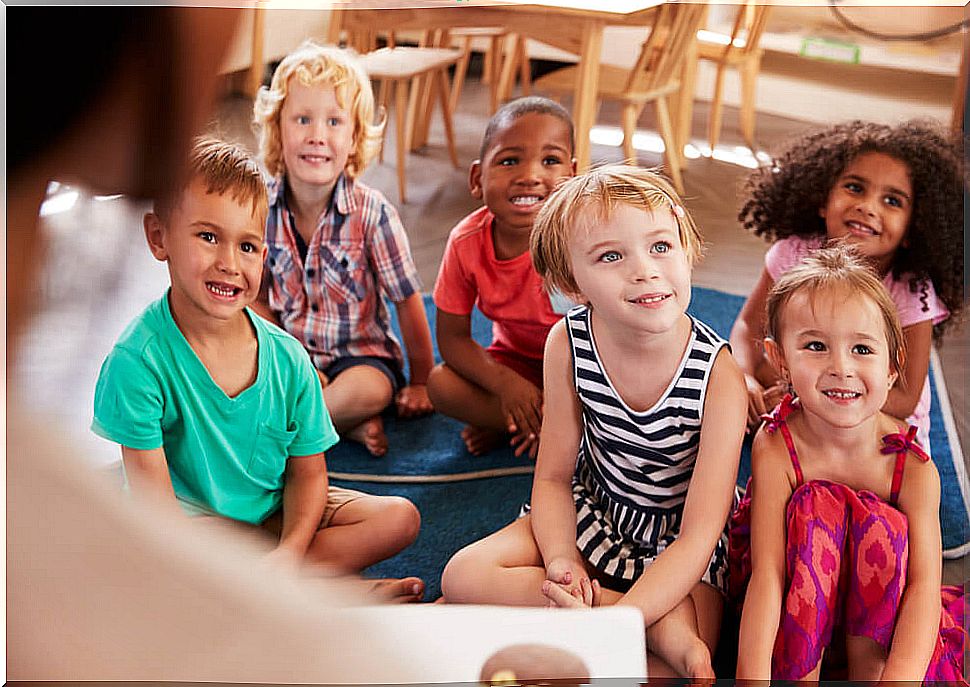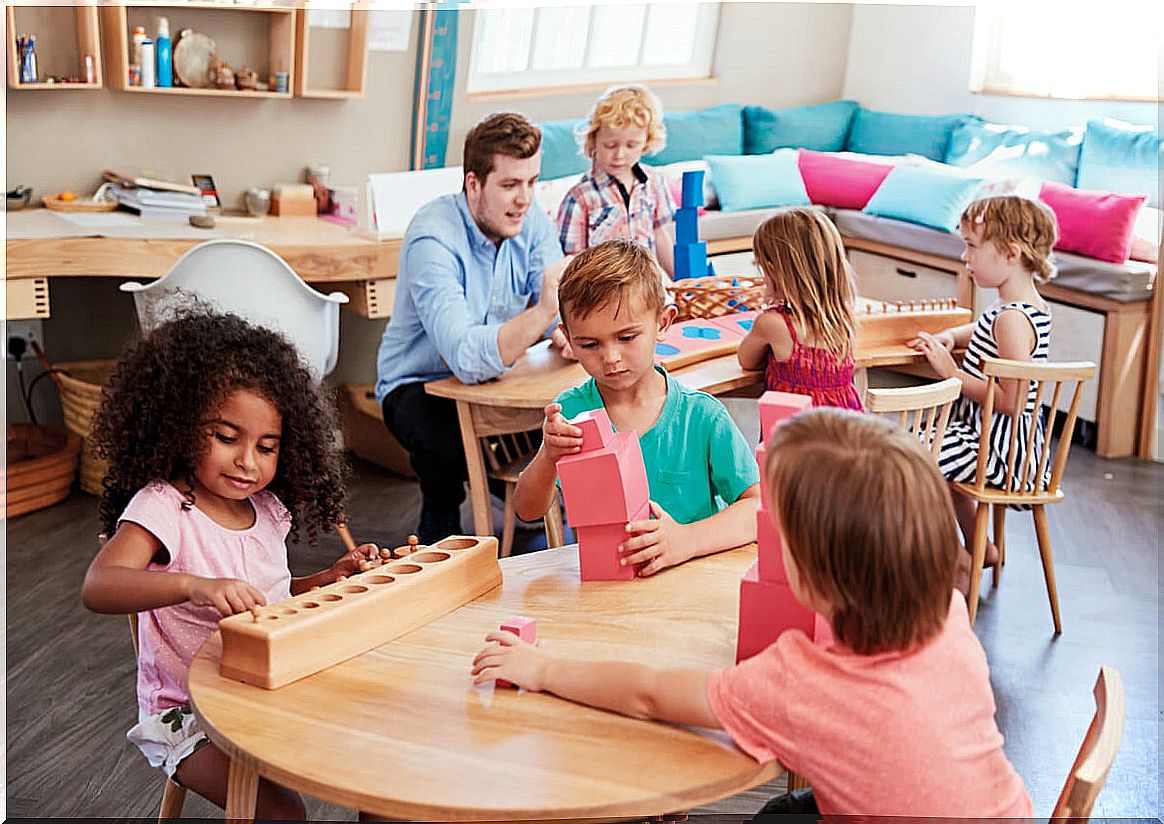How Should Children Be Motivated In Their Educational Stage?
Motivated children learn much better, since in their educational stage they are true sponges. Thus, we must know how to encourage them to develop in the best possible way.

The educational stage of children comprises two cycles: the first runs from 6 to 8 years and the second from 8 to 10 years. This phase is very important. In it, children are like sponges that absorb everything, so we have to learn to motivate them in the right way.
In the event that the little ones do not feel encouraged in this educational stage of their development, many knowledge and learnings will be left along the way. Also, allowing them to get bored and unmotivated at such a young age could lead them to associate studying and cultivating themselves as martyrdom.
How should children be motivated in their educational stage?

Learn while having fun
If we want to motivate children in their educational stage, we must forget about the traditional classes in which they have to be still listening to the teacher. If this is boring for adults, imagine what it will be like for a curious child who wants to move all the time.
In addition, even from our perspective as adults, we can be aware that if learning is fun, it is much better internalized. Therefore, making certain games and transforming theory into practice will be two very interesting options.
Let’s take a very simple example. If our son is studying the types of trees that exist in his Knowledge of the Environment class, and this does not motivate him and it is difficult for him to learn the concepts, what better way to get him to learn than by immersing him in nature?
As parents, we can take him on an excursion to a park or a nature trail. While we enjoy the landscape, we will see the different types of trees that we come across and try to identify them. Our son can touch them, smell their leaves (that of the eucalyptus, for example) and learn in situ everything he needs through experience. All of this is evidenced in this study published in the journal Perspectives .
Have free time in their educational stage
Today, many children attend many extracurricular activities that take up time to play, to get bored, or to do nothing. This is not entirely good for them, as this article published in the journal Perspectives in Psychology in 2012 points out.
What benefits can be gained from encouraging children to enjoy their free time? Well, here are some that will also help your personal development:
- They learn to decide : children must learn to be more autonomous and make decisions, even if they are small. If we do not let them, in the future they will seek to depend on other people to tell them what to do or not to do.
- They develop their curiosity : the little ones are terribly curious because everything catches their attention. If they have free time, they can let their curiosity flow and satisfy it.
- They begin to know how to choose : in that time for them, the little ones will have to figure out how to choose what they want to do. Multiple options will appear in their head, but they will choose one of them. This, in the future, will help them to know how to choose.
Listen to your needs

Having a child does not mean that we know everything about him from minute one. We have to know him and, above all, listen to his needs. Because what he does is one thing and what he wants is another. Let’s look at a simple example.
Juan is a 5-year-old boy who loves to play soccer with his parents. However, when they put him in classes of this sport, Juan becomes sad, does not enjoy them and always shows rejection to go the next time.
His parents do not understand what is happening. But if they knew how to listen to Juan, they would have no doubt what is happening. Juan loves to play soccer with them because he enjoys his parents and how much fun he has with them. Not that he is particularly interested in soccer; is that he loves to enjoy the time he is with his parents.
So before introducing a child to an activity, let’s ask them if they really want to do it or if they’d be interested in trying it out to see if they like it. The little ones can and should decide in some situations, like the one we have seen reflected in the example.
In short, motivating children in the educational stage is not very difficult. With these 3 elements that we have addressed, we can begin to make the little ones enjoy that phase they are in.
Let’s not pretend that children become adults before their time. We don’t have to instill our burdensome routines into them. They are children and are in an educational stage in which they can learn while having fun and enjoying themselves. Let’s not take away the beauty of childhood so quickly.









